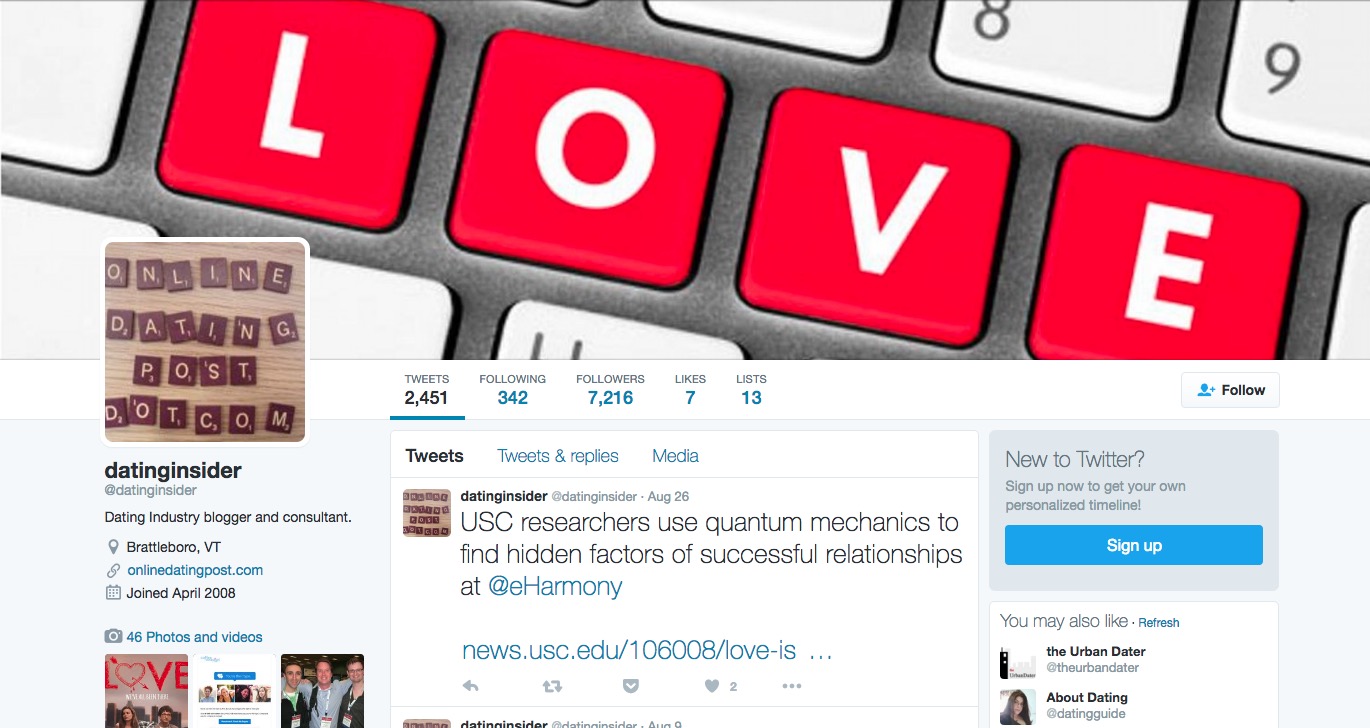I wasn’t going to mention this until I read the first paragraph of the press release. 200 million questions is a lot, but more from the perspective of “who ARE these people?” than gawking at the sheer amount of data OkCupid is able to gather from members, which is for another post, because if you don’t learn something about your audience after they answer 200 mullion questions…
What got my attention was that OkCupid.com applies a mathematical algorithm to every question answered to determine a compatibility score for potential couples.
The last week or so there has been an increase in the volume of discussion surrounding scientific matching. I continue to read whitepapers, both academic and marketing, trying to make sense of whole new lexicon pertaining to the science of matchmaking. I can barely keep up with Fernando talking about Big-5/Big-7 based personality traits tests and multiple_regression relationship_satisfaction_equations, whew!
I hope Sam at OkCupid will chime in and tell us more about this equation. Does it match animal lovers, or tennis players, or mine a deeper vein of compatibility?
In the past, any time I see the word “scientific” mentioned in the same sentence with “online dating” I tended to attribute the turn of phrase to an overzealous marketing department bent on betting the farm on an indefensible market differentiator. I’m slowly coming around, but it takes a lot of time to understand how and more importantly, why these profiling sytems can, and in some cases, do work. I know that eHarmony has been very successful touting it’s scientific matching system, but I attribute most of that success to $120 million yearly marketing budgets driving pervasive radio and television advertising campaigns.
OkCupid’s press release goes on to say:
Unlike eHarmony, which requires its users to respond to demeaning statements like “I feel unable to deal with things� or “I am easily discouraged,� OkCupid.com gives its members control by letting them suggest the questions to ask, and answer only the questions that matter to them.
Let’s talk about this for a minute.
Consumating (what up, Ben?), and to some extent Tickle, have been letting members ask and answer questions for a long time now. Obviously OkCupid sees this as an important part of their feature mix, and I agree 100%. I was talking about adding questions and blogs to dating sites three (four?) years ago at SITRAS. Anything to move past static billboard-style profiles. A few sites have added blogs, mainly Fastcupid (nee SpringStreet Networks, whatever happened to that site? It’s like it dropped off the face of the earth shortly after the integration with Friendfinder (who bought and rebranded SpringStreet as Fascupid, not smart IMHO. )
It’s interesting that Yahoo Personals and Match are #1 and #2, yet one makes heavy use of personality testing and the other doesn’t. Match featured personality testing from WeAttract years ago. Speaking of Weattract, where are they now? They were supposed to launch a low-priced, easy-to-implement a la Userplane personality test for smaller sites that can’t afford six-figure licensing deals, but that never came to fruition. Anyway, Match used the WeAttract system for a while, dropped it, and Yahoo picked it up and ran with the ball, integrating the answers with the search function, something Match never got around to doing for a variety of reasons. I’ve written about this before, sometimes its good to remind people of these things, especially you new blog readers.
Back to OkCupid. Who says that self-identification of less than positive personality traits is demeaning? Will people answering only the questions they feel like affect how the answers are used to match them with this supposedly scientific matching system? Who knows? Heck, maybe OkCupid’s $6 million is worth enough advertising dollars to catapult them past PlentyOfFish? The dating space is just to squirrelly to make guesses about what’s coming next, except that revenue will grow and site will get bought. I thought we would be far ahead of where of where we are today when I started blogging about online dating in 2002.
OkCupid now has a TON of marketing data on their members. Can Sam and his team convert what they learn from the data into features and functionality heads-above the rest of the industry, or will they settle for a killer advertising campaign, hopefully without going downmarket into True.com boobs-buns?

